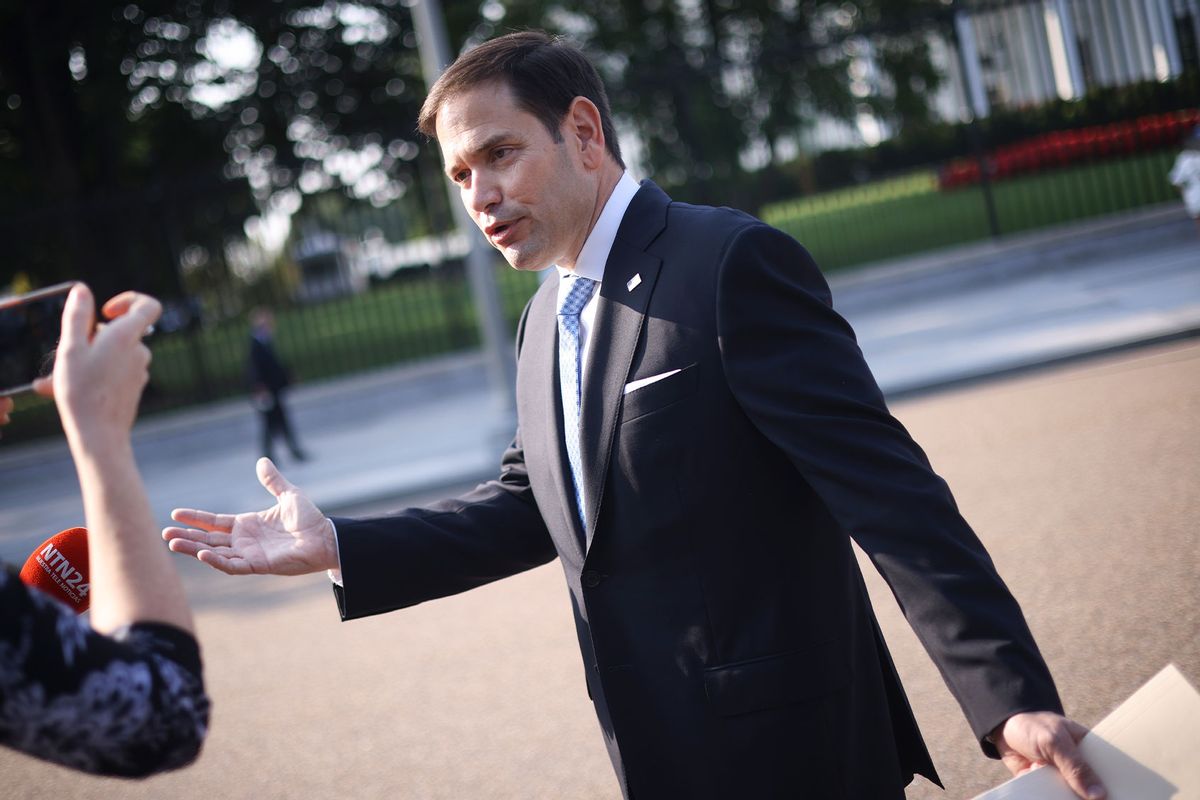The Trump administration is claiming the right to deport individuals based on their beliefs or speech alone, as pressure mounts to release activist Mahmoud Khalil.
In a memo obtained by The Associated Press, Secretary of State Marco Rubio said that the government can expel legal residents from the country based on “past, current, or expected beliefs, statements, or associations that are otherwise lawful.” The memo came in response to a federal judge's order to show evidence in its case against Khalil.
Khalil was grabbed by federal agents inside his Columbia University housing last month and transported to a detention center in Louisiana.
Rubio pulled the alleged authority to rendition activists from a 1952 act that specifies the Secretary of State can flag an individual for deportation if their presence could have “serious adverse foreign policy consequences.” The rarely-invoked clause is vague, though legal experts say the federal government cannot unilaterally revoke a person's green card status.
Rubio claimed in the memo that Khalil’s involvement in pro-Palestinian protests on Columbia’s campus constitutes a belief worthy of deportation based on the “U.S. policy to combat antisemitism around the world.”
“Condoning antisemitic conduct and disruptive protests in the United States would severely undermine that significant foreign policy objective,” he wrote.
The claim is in line with Rubio’s previous suggestion that college students who “create a ruckus” were deportable. Rubio made that case while defending his decision to cancel Tufts University doctoral candidate Rumeysa Ozturk's visa for an op-ed she wrote criticizing her university’s response to campus protests.
“Every time I find one of these lunatics, I take away their visa,” Rubio told reporters last month. "Go back and do it in your country."
Legal experts say the authority claimed by Rubio, left unchallenged, would constitute a major erosion of civil liberties in the United States.
“Welcome to the era of thought crimes,” prominent national security attorney Bradley Moss wrote on Bluesky.
Khalil is one of at least 600 international students across 100 colleges in the United States who Rubio has purportedly stripped of their visas, per an Inside Higher Education report. Thousands more could face a similar fate after DHS announced a plan to surveil the social media posts of non-citizens for pro-Palestinian or antisemitic ideology on Wednesday.
Read more
about this topic



Shares